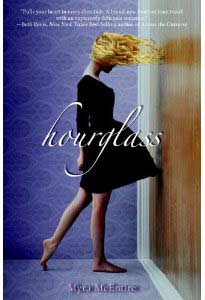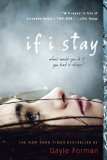DayByDayWriter has moved. I figured it was time to have a URL with my name. 🙂
So, please come and join in over at SamanthaClark.wordpress.com.
Write On!

DayByDayWriter has moved. I figured it was time to have a URL with my name. 🙂
So, please come and join in over at SamanthaClark.wordpress.com.
Write On!

I read some really troubling news today. In the U.K., three out of every 10 children do not own any books — none! No bookcases in their bedroom with Where the Wild Things Are, The Little Prince, Harry Potter… No parents reading to them before they go to bed. I hope they at least borrow books at a library.
As a children’s book writer, this doesn’t look good for my future financial prospects, but that’s not why it’s troubling. I feel for these kids. They don’t know what they’re missing. I couldn’t imagine my childhood without books. They were my escape when I needed help. Books gave me confidence. The characters were my friends. They were always there for me. And my love of books then has shaped the person I am today.
According to the Guardian‘s report on the U.K.’s National Literacy Trust’s survey, not owning books is potentially damaging to children. Here’s a quote:
Children who did not own books were two-and-a-half times more likely (19%) to read below their expected level than children who had their own books (7.6%), and were also significantly less likely (35.7%) to read above their expected level than book-owning children (54.9%).
And here’s another:
Children who don’t own books “are less likely to have positive experiences of reading, less likely to do well at school and less likely to be engaged in reading in any form,” according to the research. “It is not a case of books being irrelevant now technology has superseded printed matter,” wrote the National Literacy Trust’s researchers Christina Clark and Lizzie Poulton. “Children with no books of their own are less likely to be sending emails, reading websites or engaging with their peers through the written word on social networking sites. Children who grow up without books and without positive associations around reading are at a disadvantage in the modern world.”
The Guardian‘s report says the problem is worse with boys, where 4 in 10 books don’t own books.
Parents are to blame. They set the standard for their children. They are the primary gift buyers.
Couldn’t books be thrown in with the Xbox games? Books are much less expensive. And what are parents reading to their kids before bedtime? The newspaper? It’s sad to think these children are missing out on that bedtime tradition.
But there is something we can all do to stop this problem — because I’d be willing to bet there are similar numbers in the U.S. too. Whenever we’re buying gifts for children, our own or friends’, buy them books.
How did books help you when were a kid?
Write On!

My husband and I were talking about fear the other day and he mentioned the saying that’s painted over the player’s entrance to centre court at Wimbledon: “If you can meet with triumph and disaster and treat those two imposters just the same…” It’s a small section of poet Rudyard Kipling‘s poem If, and it reminded me of the ups and downs writers face every day.
If you don’t know If, you can find it at EveryPoet.com, and it’s worth reading. A lot of lines fit what we go through:
If you can trust yourself when all men doubt you / But make allowance for their doubting too
We get lots of opinions about our writing, from critique groups, family members, friends (you know, when they inwardly roll their eyes when you say you’re working on another novel), agents, editors, etc., and it can be hard to digest. Even from those people we trust, we sometimes get conflicting ideas. But as writers, our loyalty has to be to our writing. Our job is to take in all the approvals and criticisms, process them and use only what we feel will help our work get to a new level. We have to take all the doubts and push them aside, fully believing in ourselves and our work, while also recognizing that we can always learn more.
If you can dream — and not make dreams your master
If we didn’t have the dream of being published, we probably would never show our writing to anyone. Dreaming is a big part of writing, not only for our creativity but also to power our drive, but the challenge is to not get so caught up in our dream that we don’t enjoy our lives. Writing requires a lot of waiting, and in that time, we must live — and write even more.
If you can force your heart and nerve and sinew / To serve your turn long after they are gone / And so hold on when there is nothing in you / Except the Will which says to them “Hold on”
I’ve read about and talked to a lot of writers who’ve had moments when they’ve thought about quitting, not wanting to face any more disappointment, but if they didn’t, they would miss out on the best part of writing: the creation — not to mention the book signings when their book is finally in print.
If we can do all that and more, as Kipling says:
Yours is the Earth and everything that’s in it / And — which is more — you’ll be a Man, my son!
(Or woman!)
So writers, fear will always be with us, we just have to keep our heads.
Write On!

I had a blast volunteering for my local Austin SCBWI chapter a few weeks ago at the Texas Library Association. It was my first time at the conference, and the rumors of all the free advanced reading copies of upcoming books were not exaggerated. I saw people walking out with big bags full of books. Very exciting!
I was working our SCBWI booth, promoting our awesome children’s book authors in Texas, so I didn’t walk out with armfulls — plus, I gotta admit, as it was my first time, I was a little too much in awe to move! But, I did visit the Egmont booth and the kind ladies there happily shared the books in Egmont’s upcoming line.
 The first one I’m reading was called by one Egmont lady her “favorite” and after starting it, I can immediately see why.
The first one I’m reading was called by one Egmont lady her “favorite” and after starting it, I can immediately see why.
Hourglass is the debut novel by Myra McEntire, a YA paranormal/science-fiction book about Emerson Cole, a young lady who, since the age of 14, has been able to see strange things, like Southern Belles, soldiers and eerie apparitions. When she meets Michael Weaver, she learns that there are others like her and she can get help at an organization called the Hourglass. The more she delives into that world, the more she learns about her past, her future and her life.
I’m on page 44 and totally hooked, but I was hooked from the opening paragraph. It immediately set the book’s tone, pulled me into its world and intrigued me enough to want to keep reading — exactly what a good opening should do.
Here it is:
My small Southern hometown is beautiful in the haunting way an aging debutante is beautiful. The bones are exquisite, but the skin could use a lift. You could say my brother, the architect, is Ivy Spring’s plastic surgeon.
Gorgeous! I can totally see why Egmont picked up this book, and that beautiful imagery continues throughout — at least for what I’ve read so far.
I’m one of those people who reads first pages in the bookstore before I take a book home with me. Sure I read the jacket cover, but then I look at the opening of the novel. If it doesn’t immediately pull me in, I put the book down.
At conferences, I’ve heard from agents and editors that they’ll give a manuscript 150 words. That’s all they have time for. If they’re not interested in 150 words, they’ll stop reading and move on to the next. There are enough manuscripts out there.
You might think, that’s not enough. 150 words is nothing. But you’d be wrong. Myra McEntire set up her book in 38!
And of course, this isn’t the only example. Charlotte’s Web anyone? Best first line of a book — ever!
So, if you want to stand out in front agents, editors and ultimately readers, make sure your first paragraph is amazing, then follow it with hundreds more. That’s how you write a great novel. Take Hourglass as inspiration.
The back of the ARC says Hourglass will debut in May, but Amazon says it’s coming June 14. So, either it has been delayed or some other retailer has an exclusive for a while. Either way, get it when it comes out. I know you won’t be disapppointed.
Write On!

I don’t write book reviews — I’m not a fast reader — but when I find a book that I really love, I like to write it. Today’s book recommendation is for Gayle Forman‘s young adult novel If I Stay.
 I discovered this book when Gayle was a speaker at the Teen Book Con in Houston last year. When I go to writers’ events, I try to support the industry by buying a few of the speakers’ books, and If I Stay was one of the novels I picked up that day.
I discovered this book when Gayle was a speaker at the Teen Book Con in Houston last year. When I go to writers’ events, I try to support the industry by buying a few of the speakers’ books, and If I Stay was one of the novels I picked up that day.
The book’s premise intrigued me immediately: After being in a car accident with her parents and young brother, a teenager falls into a coma. But her spirit stands outside her body, and as she watches her family, friends, doctors and nurses try to keep her alive, she considers if it’s worth it.
You could say I’m drawn to the dark, and this book was no exception.
But what also touched me was the way Gayle talked about it. She said that when we’re writing, we shouldn’t worry about the market or whether a book will sell when we’re done. We should follow our heart and write the story we want to tell. That’s what she did with this novel, putting her whole heart into the writing, and that’s what made me want to read it.
If I Stay pulled me in from the first few pages, and I couldn’t put it down. I finished the book in less than a week, which is fast for me — the only time I get to read is while I’m brushing my teeth and getting ready for bed.
It’s a touching and beautifully written novel that has a lot of heart.
I highly recommend it.
What book did you read recently that you’d like to recommend?
Write On!

 Saturday was the monthly meeting of the great Austin chapter of the SCBWI at the awesome independent bookstore BookPeople, and all who attended got a healthy dose of inspiration.
Saturday was the monthly meeting of the great Austin chapter of the SCBWI at the awesome independent bookstore BookPeople, and all who attended got a healthy dose of inspiration.
The speaker was author Jessica Lee Anderson, who taught about dealing with the ups and downs of publishing through songs — and yep, she even sang.
Jessica reinforced the idea I wrote about in my last post, that the writing is the best part of the journey, so stop worrying about publication. But how to do that? Well, with a little Patience (from Guns ‘n Roses), R.E.S.P.E.C.T. (from Aretha Franklin) for ourselves as writers and people, and the knowledge that I Will Survive (Gloria Gaynor). (Jessica’s talk had a wonderful soundtrack!)
Jessica also reminded us that reading is one of the best ways to become a better writer, and she said she had set a goal for 2011 to read a book a week. A book a week! And she’s running ahead of that goal right now!
I was amazed. I can’t read that fast. (She did admit to me later that she listens to a lot of audio books in her car and has to drive a lot, so that’s one way you can fit them in.)
Although I won’t be matching Jessica’s pace any time soon, she did inspire me to push harder to get more books read. Spurred on, this weekend I picked up my book whenever I had a few spare minutes, instead of browsing the Web. I was determined to finish the novel I was reading and start another. I finished on Sunday afternoon and immediately went to my unread pile and picked up a new book. I’m already racing through that one — as often as I can at least. We’ll see if I can finish it in a week.
So, stop worrying, be patient, keep writing and make reading a priority.
Do you have a reading goal?
Write On!